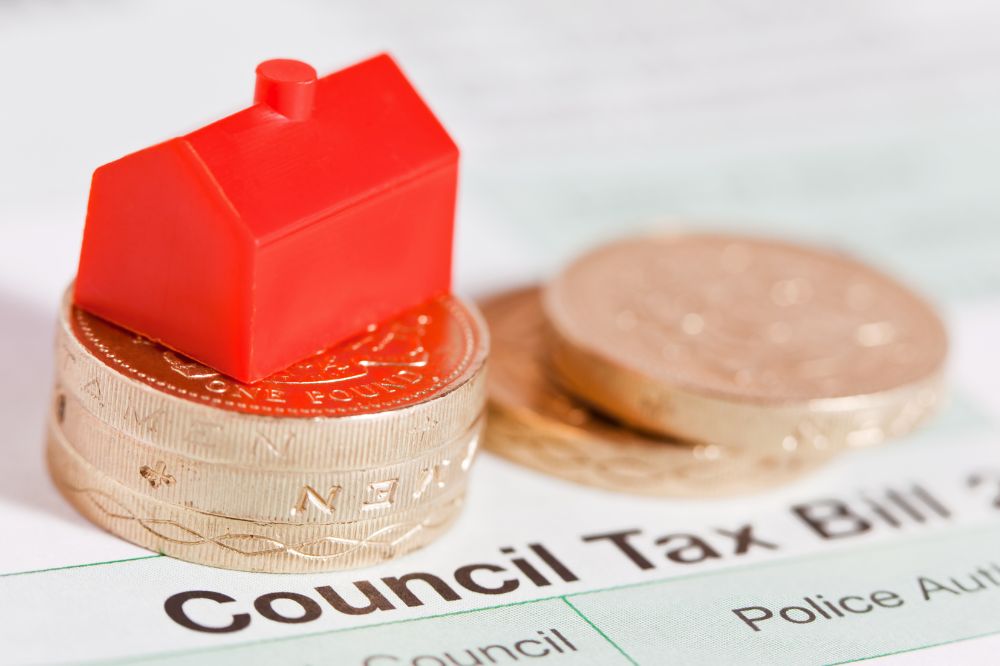Mooted 21% rise in council tax labelled ‘kick in the teeth’

Bruce Sinclair – Local Democracy Reporter
A potential council tax rise of as much as 21 per cent has been described as “a kick in the teeth for hard working families”.
Members of Pembrokeshire County Council’s Cabinet, meeting on February 12, are asked to recommend one of three options for a council tax increase, ranging 16.31 per cent, 18.94 per cent, and an eye-watering 20.98 per cent increase.
These increases would increase the annual council tax rate by £219.02, £254.34, and £281.73 respectively to the average Band D property.
Pembrokeshire is currently facing a projected funding gap of £31.9m, partly due to a lower-than-expected Provisional Local Government Settlement.
Increase
That figure has increased from £27.1m in December, and £28.4m in January, when it was described as “by far the highest funding gap in our history,” by Cabinet Member for Corporate Finance Cllr Alec Cormack.
Pembrokeshire currently has the lowest basic Band D Council Tax in Wales, at £1,342.86 a year for 2023-’24, compared to Ceredigion’s £1,553.60 and Carmarthenshire’s £1,490.97.
The latest proposed increases would see the basic part of those bills rise to £1,561.98, £1597.30, and £1,624.69 respectively.
In a report before Cabinet members, the three general council tax options are outlined, with warnings that challenging cuts to council expenditure would still have to be made, even with these huge increases.
Cllr Aled Thomas, Conservative group spokesman for finance reacted to the potential council tax increases, laying the blame at the current ruling administration, led by Councillor David Simpson.
“The recommended council tax increases put forward to cabinet are a stark reality check on how badly this administration has failed to plan for a stable financial future.
“It’s beyond belief that this administration – which has prioritised vanity projects over the needs of Pembrokeshire people – feels that’s it’s acceptable to ask the taxpayer for more money, while heavily cutting services.
“Cllr Simpson’s tenure as leader is becoming increasingly untenable, and the people of Pembrokeshire deserve a new leader as soon as possible that will deliver for their priorities.”
Pressure
The potential rises also drew the ire of current Conservative Preseli Pembrokeshire MP Stephen Crabb, who is standing in the new seat of Pembrokeshire Mid and South.
“I was disappointed to see reports that Pembrokeshire County Council, currently run by a coalition of unaffiliated councillors, as well as Labour, Plaid and Liberal Democrats members, has proposed council tax rises of between 16 per cent and 21 per cent,” said Mr Crabb.
“At a time when the UK Government in England has capped rises at five per cent, this will be a kick in the teeth for hard working families across Pembrokeshire.
“We all recognise the cost pressures the council are under which is why the Welsh Labour Government should be doing more to support local authorities, not squandering money on increasing the number of politicians in the Senedd.”
Samuel Kurtz MS said: “The potential council tax hike of 21 per cent is a damning indictment of both a flawed local authority funding formula imposed by the Labour Government and councillors who are all too happy spending taxpayers’ money on pet projects rather than the priorities of Pembrokeshire’s people.
“The delivery of statutory services must be the absolute focus of the council and I’m pleased that our Conservative councillors are holding this rainbow coalition to account in County Hall.”
‘Unacceptable’
Paul Davies MS added: “These potential council tax rises are totally unacceptable. Hard pressed taxpayers should not have to face such a steep increase in their council tax bills, without a referendum taking place. Any increases beyond five per cent, should be put to local people in a referendum, similar to what has been practiced in England since the 2012/13 financial year.
“It’s also time that the Local Government funding formula is reformed by the Welsh Government to ensure that all Welsh Councils get treated equally. Our council needs strong leadership to fight for the best deal from the Welsh Government, something that it clearly does not have at the moment.”
Cllr Simpson has been contacted for a response.
The final decision on the council tax level will be made by full council when it sets the annual budget on March 7.
Neighbouring Ceredigion is recommended to increase its council tax by up to 13.9 per cent, with the final decision there made on February 29
Support our Nation today
For the price of a cup of coffee a month you can help us create an independent, not-for-profit, national news service for the people of Wales, by the people of Wales.






I am glad the local MP raised the point about councils in England, but I am disappointed he stopped short of explaining that 1 in 5 councils in England, a mix of Tory and Labour, have said that they expect to go bankrupt in the next 15 months. If he had, then the council could use it as the example for the locals, of how things are working out, over the border, under his party’s rule.
https://www.google.com/url?sa=t&source=web&rct=j&opi=89978449&url=https://www.theguardian.com/commentisfree/2024/jan/14/englands-councils-bankrupt-westminster&ved=2ahUKEwjImPSkj5yEAxXNhf0HHX6pDB0QFnoECCEQAQ&usg=AOvVaw3llNLWhU-jh__hx4BXMtP-
When did they last replace the council car/vehicle pool and any other perks ?
Who, ultimately, hold the purse strings? The party in power in westminster! Here in Cymru we are held back by the union, we are just an afterthought. We will never achieve anything substantial until we gain independence!